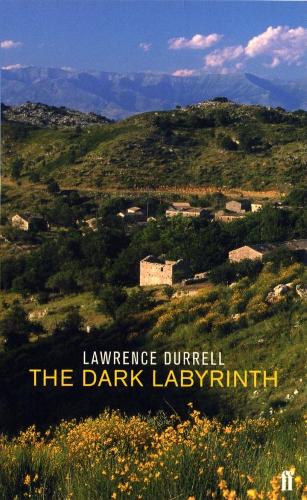
The Dark Labyrinth
(, Main)
Publishing Details
The Dark Labyrinth
By (Author) Lawrence Durrell
Faber & Faber
Faber & Faber
9th July 2001
Main
United Kingdom
Classifications
General
Fiction
823.912
Physical Properties
256
Width 112mm, Height 178mm, Spine 20mm
220g
Description
This captivating Mediterranean novel was written by Lawrence Durrell immediately after finishing his exquisite vignette about Corfu, Prospero's Cell, and a decade before he started Justine. Originally called Cefalu, the story is set on Crete just after the War, as an odd assortment of English travellers come ashore from a cruise ship to explore the island, and in particular to examine a dangerous local labyrinth. They include an extrovert painter, a spiritualist, a Protestant spinster with a fox terrier, an antiquarian peer and minor poet, a soldier with guilty memories of the Cretan resistance, a pretty convalescent, and an eccentric married couple. To some extent the book is a roman a clef, and Durrell's characters talk with great reality about their experiences, themselves, and a certain psychological unease that has led most of them to embark on their journey. The climax is a disastrous visit to the labyrinth, with its reported minotaur. The Dark Labyrinth is something not to be missed.
Reviews
'The writing is nearly always superb, not only in the great passages of poetical description but also in the asides, the casual wit and the brilliance of comment.' Philip Toynbee, Observer
Author Bio
Lawrence Durrell was born in 1912 in India. He attended the Jesuit College at Darjeeling and St Edmund's School, Canterbury. His first literary work, The Black Book, appeared in Paris in 1958. His first collection of poems, A Private Country, was published in 1943, followed by the three Island books: Prospero's Cell, Reflections on a Marine Venus, about Rhodes, and Bitter Lemons, his account of life in Cyprus. Durrell's wartime sojourn in Egypt led to his masterpiece The Alexandria Quartet, completed in southern France where he settled permanently in 1957. Between the Quartet and The Avignon Quintet he wrote the two-decker Tunc and Nunquam. His oeuvre includes plays, a book of criticism, translations, travel writing, and humorous stories about the diplomatic corps. Caesar's Vast Ghost, his reflections on the history and culture of Provence, including a late flowering of poems, appeared a few days befo
